
Crocus Bay: A Tranquil Paradise in Anguilla
Crocus Bay is a serene and picturesque beach located on the northwestern coast of Anguilla. Known for its calm waters and stunning sunsets, this bay is a must-visit for anyone looking to unwind and enjoy the natural beauty of the Caribbean. The sandy shores are perfect for sunbathing, while the clear, shallow waters are ideal for swimming and snorkeling. Aside from its natural allure, Crocus Bay is home to the historic Crocus Hill, the highest point on the island, offering panoramic views of the surrounding landscape. Just a short hike away, visitors can explore the ruins of the old courthouse and prison, providing a glimpse into Anguilla's storied past. For those who enjoy a blend of relaxation and adventure, Crocus Bay offers a variety of water activities, including kayaking and paddleboarding. Local fishermen often bring in fresh catches, making it an excellent spot for seafood lovers. Nearby restaurants serve up delicious local dishes, allowing visitors to savor the flavors of Anguilla while enjoying the breathtaking scenery.
Local tips in Crocus Bay
- Visit early in the morning or late afternoon to avoid the midday heat and enjoy the best light for photography.
- Bring snorkeling gear to explore the underwater world; the clear waters are teeming with marine life.
- Hike up to Crocus Hill for panoramic views and a touch of history with the old courthouse and prison ruins.
- Try local seafood at nearby restaurants; the fresh catches of the day are a highlight.
- Rent a kayak or paddleboard to explore the bay's serene waters and discover hidden coves.
Crocus Bay: A Tranquil Paradise in Anguilla
Crocus Bay is a serene and picturesque beach located on the northwestern coast of Anguilla. Known for its calm waters and stunning sunsets, this bay is a must-visit for anyone looking to unwind and enjoy the natural beauty of the Caribbean. The sandy shores are perfect for sunbathing, while the clear, shallow waters are ideal for swimming and snorkeling. Aside from its natural allure, Crocus Bay is home to the historic Crocus Hill, the highest point on the island, offering panoramic views of the surrounding landscape. Just a short hike away, visitors can explore the ruins of the old courthouse and prison, providing a glimpse into Anguilla's storied past. For those who enjoy a blend of relaxation and adventure, Crocus Bay offers a variety of water activities, including kayaking and paddleboarding. Local fishermen often bring in fresh catches, making it an excellent spot for seafood lovers. Nearby restaurants serve up delicious local dishes, allowing visitors to savor the flavors of Anguilla while enjoying the breathtaking scenery.
When is the best time to go to Crocus Bay?
Iconic landmarks you can’t miss
Elvis Beach Bar
Discover the vibrant atmosphere, delectable Caribbean cuisine, and stunning views at Elvis Beach Bar in Anguilla, the ultimate beachside retreat.
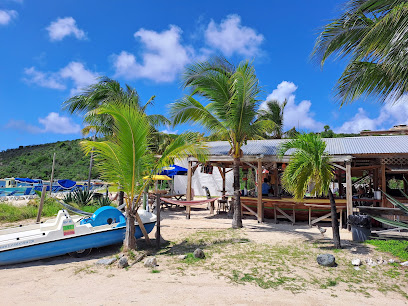
Cap Juluca, A Belmond Hotel, Anguilla
Experience unparalleled luxury and breathtaking beauty at Cap Juluca, A Belmond Hotel, nestled on the stunning shores of Maundays Bay, Anguilla.

Zemi Beach House, LXR Hotels & Resorts
Discover the ultimate Caribbean getaway at Zemi Beach House, where luxury meets natural beauty on Anguilla's stunning shores.

Shoal Bay Beach
Discover the breathtaking beauty of Shoal Bay Beach in Anguilla, where powdery sands meet crystal-clear waters for an unforgettable Caribbean escape.
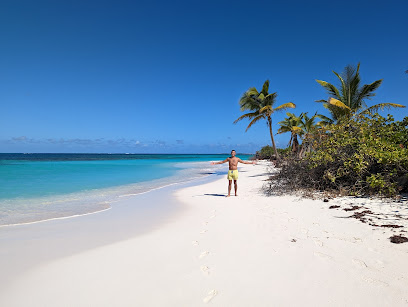
Da'Vida
Experience the best of Anguilla's cuisine with breathtaking views at Da'Vida, where local flavors meet oceanfront dining.
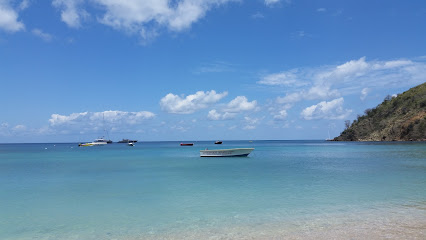
Sunshine Shack
Experience the best of Caribbean flavors at Sunshine Shack, a beachfront restaurant in Anguilla that promises delightful dishes and stunning ocean views.
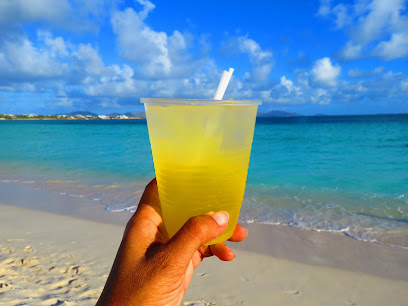
Madeariman
Discover the vibrant culinary scene at Madeariman, where fresh local ingredients meet Caribbean flavors in a stunning beachfront setting.
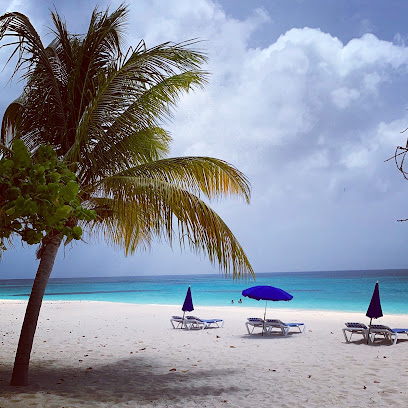
Bankie Banx's Dune Preserve
Discover the heartbeat of Anguilla at Bankie Banx's Dune Preserve, where live music, delicious cuisine, and beachside relaxation await.
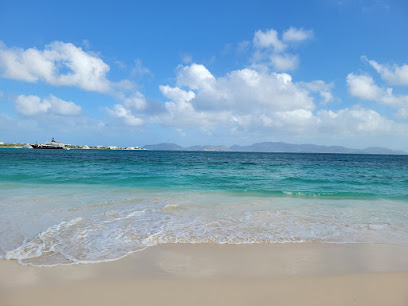
Gwen's Reggae Bar and Grill
Discover the vibrant flavors and rhythms of Anguilla at Gwen's Reggae Bar and Grill, where Caribbean cuisine meets the spirit of reggae.
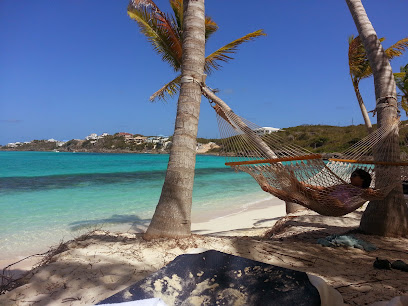
Anguilla Arch
Experience the stunning views and serene beauty of Anguilla Arch, a must-visit scenic point on your Caribbean adventure.
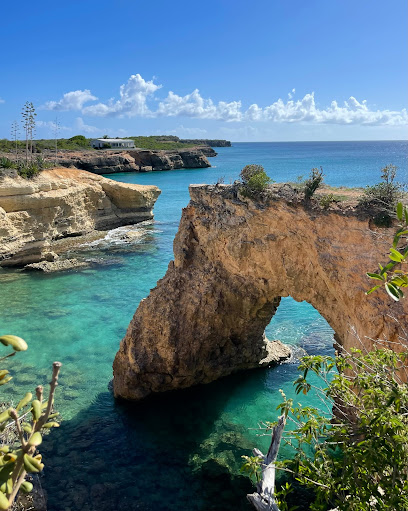
Elodias Beach Resort
Experience the ultimate island getaway at Elodias Beach Resort in Shoal Bay, Anguilla, where luxury meets tranquility in a stunning Caribbean paradise.
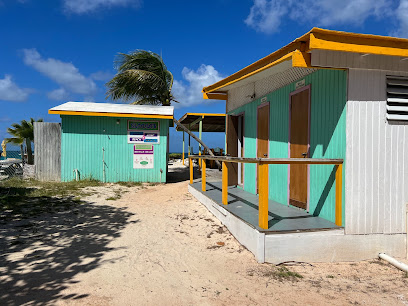
Anguilla Great House Beach Resort
Experience the tranquility of Anguilla Great House Beach Resort, where stunning beachfront views and Caribbean hospitality create the perfect getaway.
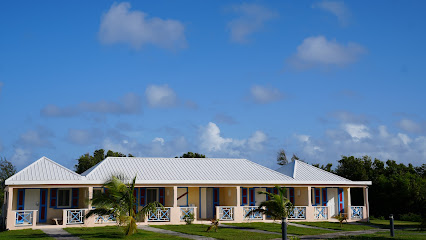
The Ferryboat Inn
Discover the serene beauty and warm hospitality at The Ferryboat Inn, your perfect getaway in Anguilla's tropical paradise.

Fountain Residences Anguilla
Experience the serene charm of Fountain Residences Anguilla, your perfect getaway on the stunning Shoal Bay with modern comforts and beautiful nature.

Turtle's Nest Beach Resort
Experience beachfront bliss at Turtle's Nest Beach Resort on Anguilla's stunning Meads Bay, offering relaxation, comfort, and Caribbean charm.

Unmissable attractions to see
Elvis Beach Bar
Anguilla's iconic beach bar, offering sun, sand, fun, delicious food, and lively entertainment on the beautiful Sandy Ground beach.
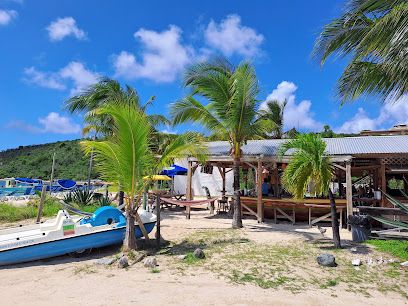
SandBar
Beachfront bistro in Anguilla's Sandy Ground offering tapas, cocktails, and live music with a laid-back, chill vibe.
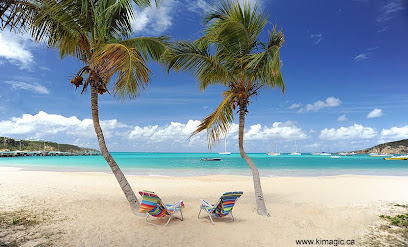
Maundays Bay
Discover Maundays Bay, Anguilla: Pristine sands, tranquil waters, and luxurious relaxation on one of the Caribbean's most beautiful beaches.
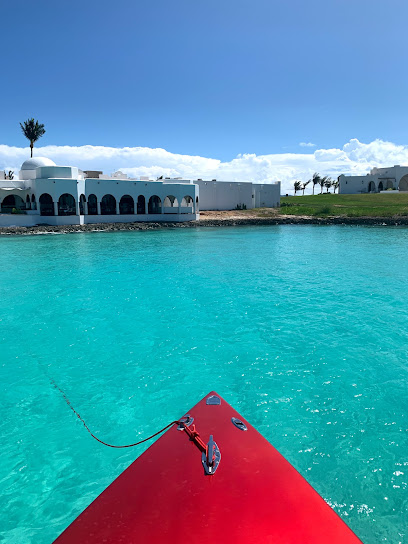
Sandy Island Anguilla
Escape to Sandy Island, Anguilla: A tiny Caribbean paradise with white sands, turquoise waters, and a lively beach bar.
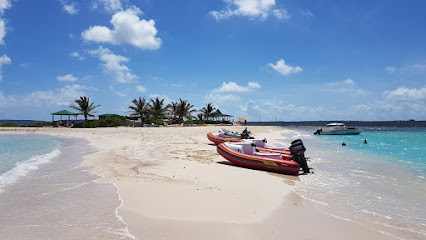
Prickley Pear Cays
Discover pristine beaches, vibrant reefs, and Caribbean flavors on Anguilla's idyllic, uninhabited Prickly Pear Cays. A perfect day trip escape.
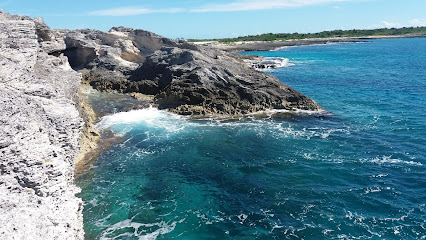
Crocus Hill
Ascend Anguilla's highest point for panoramic views, historical insights, and a tranquil escape amidst stunning Caribbean scenery.
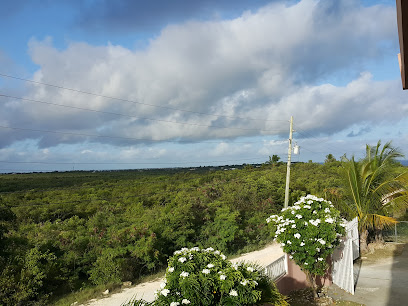
Essential places to dine
Blanchards Restaurant and Beach Shack
Experience vibrant Caribbean cuisine with stunning ocean views at Blanchards Restaurant & Beach Shack in Anguilla.
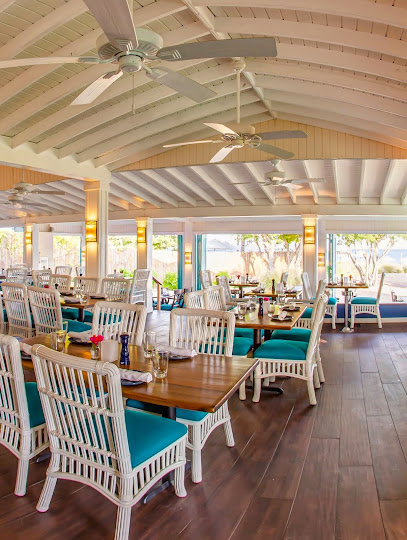
Elvis Beach Bar
Discover relaxation at Elvis Beach Bar in Anguilla: A perfect blend of beachside vibes, delicious food, and refreshing drinks.
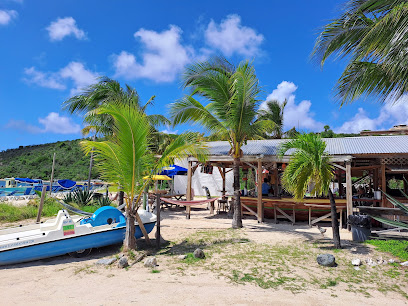
Straw Hat Restaurant
Experience exquisite Caribbean cuisine at Straw Hat Restaurant in Anguilla, where stunning views meet exceptional flavors.
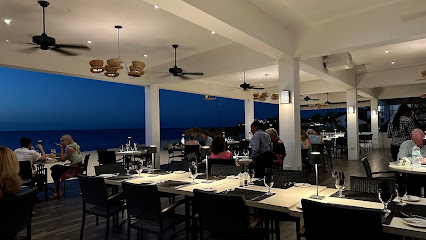
Da'Vida
Discover Da'Vida in Anguilla: A culinary gem offering fresh seafood and stunning views overlooking Crocus Bay.
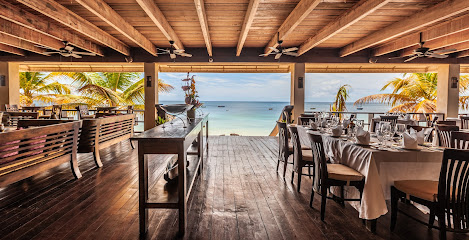
Roy's Bayside Grill
Experience authentic Caribbean flavors at Roy's Bayside Grill in Anguilla - where every meal comes with breathtaking bay views.
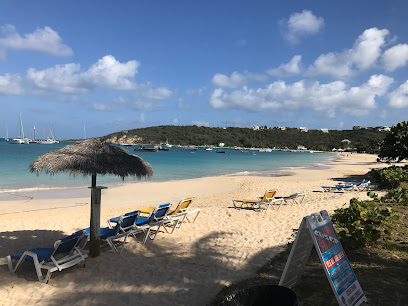
Sunshine Shack
Experience authentic Caribbean cuisine at Sunshine Shack on Rendezvous Bay Beach—where every bite is a taste of paradise.
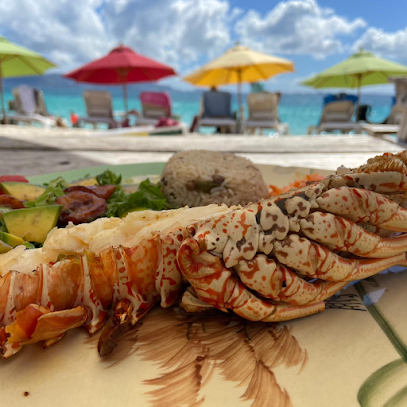
Ocean Echo Anguilla
Experience exquisite Caribbean cuisine with stunning ocean views at Ocean Echo Anguilla - your perfect dining destination on this tropical paradise.
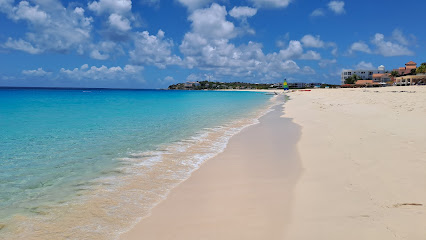
Tasty's
Discover Tasty's in Anguilla - A culinary haven serving fresh Caribbean flavors amidst breathtaking views.
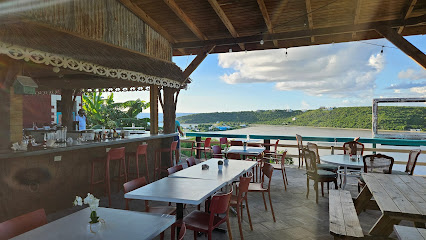
Gwen's Reggae Bar and Grill
Discover the vibrant flavors of Caribbean cuisine at Gwen's Reggae Bar and Grill – where great food meets lively reggae vibes.
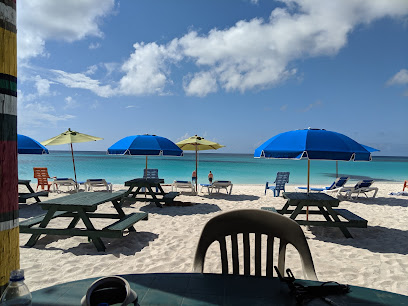
Savi Beach Club
Experience the best of Caribbean cuisine at Savi Beach Club with Italian and Japanese influences in a beautiful beachfront setting.
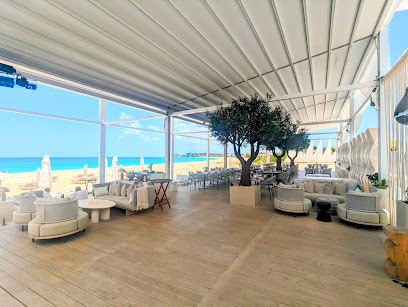
Veya Restaurant
Experience exquisite Caribbean cuisine at Veya Restaurant in Anguilla - where every meal is a celebration of flavor and artistry.
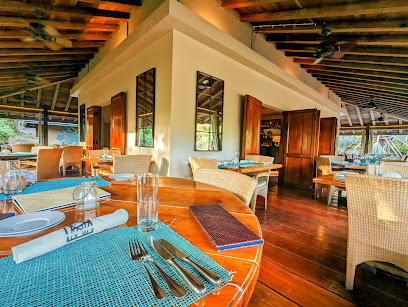
Tropical Sunset Restaurant & Bar
Experience authentic Caribbean cuisine at Tropical Sunset Restaurant & Bar on Shoal Bay East – where flavors meet breathtaking views.
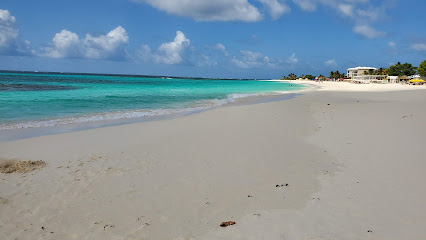
Artisan Pizza Napoletana
Experience authentic Neapolitan pizza at Artisan Pizza Napoletana in Island Harbour, Anguilla – where tradition meets flavor.
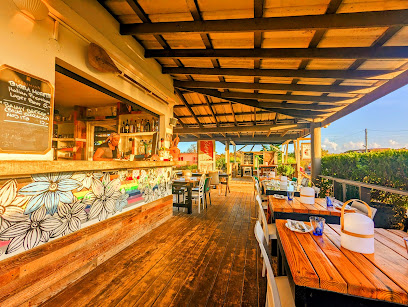
Dolce Vita
Experience authentic Italian flavors fused with Caribbean charm at Dolce Vita in Sandy Ground, Anguilla.
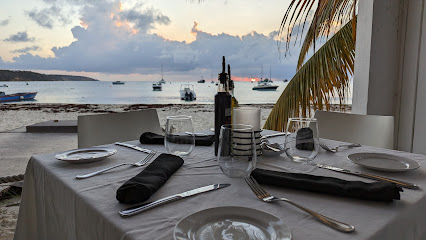
E’s Oven
Discover the vibrant flavors of Anguilla at E's Oven, where local cuisine meets exquisite dining in a cozy atmosphere.
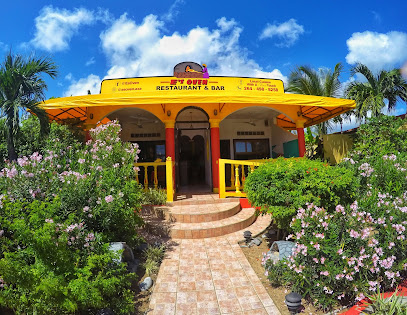
Markets, malls and hidden boutiques
Four Seasons Resort and Residences Anguilla
Discover the luxurious Four Seasons Resort and Residences Anguilla, a tropical paradise offering stunning beaches, fine dining, and a world-class spa experience.
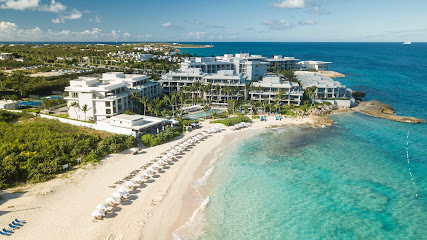
Cap Juluca, A Belmond Hotel, Anguilla
Experience the epitome of luxury at Cap Juluca, A Belmond Hotel, where stunning beaches and exceptional service create an unforgettable Caribbean retreat.

Da'Vida
Discover the flavors of the Caribbean at Da'Vida, Anguilla's premier beachfront dining destination with stunning ocean views.
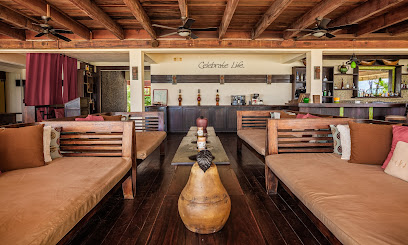
Best Buy
Explore Best Buy Supermarket in Anguilla for all your grocery needs, featuring local delicacies and a wide range of products in a friendly setting.
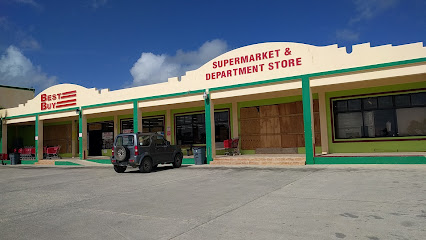
Irie Life
Explore Irie Life, a charming gift shop in Anguilla, known for its unique souvenirs, stylish beachwear, and local crafts, perfect for every traveler.
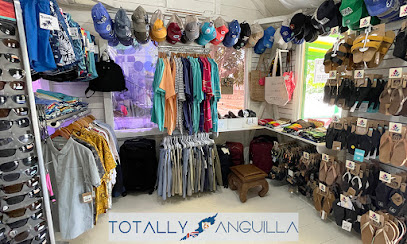
Hall’s Unique Bakery
Experience the authentic flavors of Anguilla at Hall's Unique Bakery, where fresh baked goods meet Caribbean tradition.
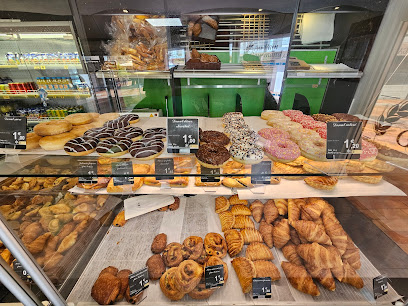
Unique Trading
Explore Unique Trading, Anguilla's vibrant supermarket for fresh produce, local delicacies, and everyday essentials for a perfect island getaway.
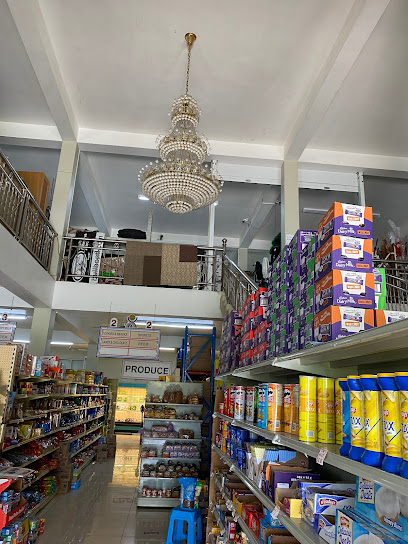
GAB's Party Essentials
Discover unique gifts, festive supplies, and local treasures at GAB's Party Essentials, your ultimate shopping destination in Anguilla.
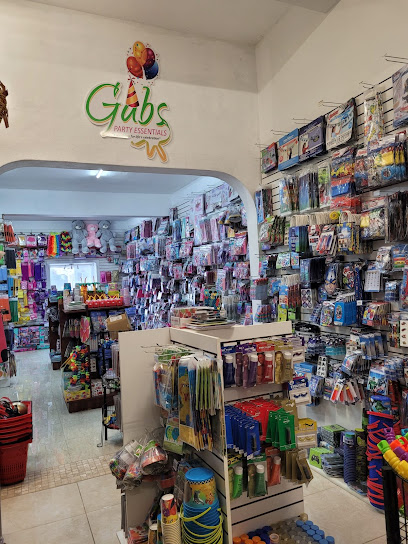
Crocus Bay Beach
Experience the serene beauty of Crocus Bay Beach in Anguilla, where white sands and crystal-clear waters create a perfect tropical getaway.
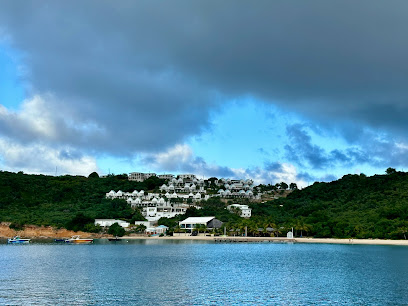
Sea Spray Gift Shop
Discover the heart of Anguilla through unique souvenirs and local crafts at Sea Spray Gift Shop, your destination for authentic Caribbean treasures.
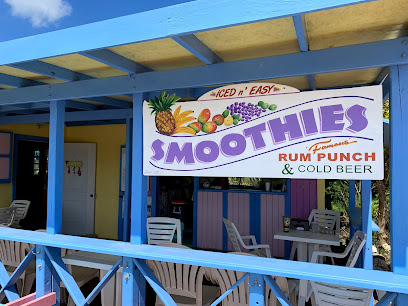
Les Grands Vins de France Wine Shop
Discover a curated selection of exquisite wines at Les Grands Vins de France Wine Shop in Anguilla, perfect for enthusiasts and casual drinkers.
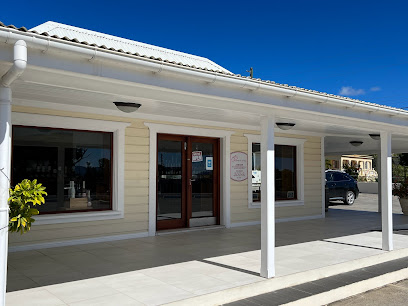
The Gift Box
Explore The Gift Box in Anguilla for unique souvenirs and local crafts that embody the spirit of the Caribbean.
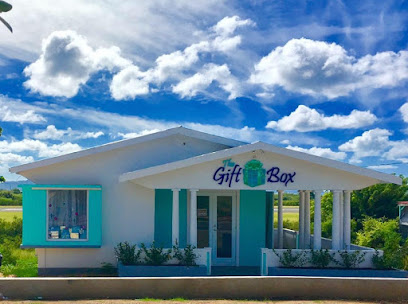
Anguilla Sands and Salts
Explore Anguilla Sands and Salts for unique gifts and local crafts that embody the spirit of the Caribbean.
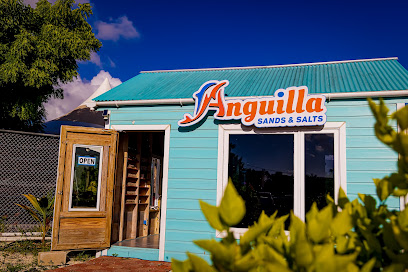
Devonish Art Gallery
Explore the artistic soul of Anguilla at Devonish Art Gallery, where local talent and creativity come to life in a vibrant and welcoming environment.
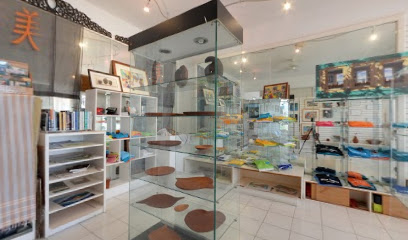
Savannah Gallery
Discover the vibrant art scene at Savannah Gallery, a premier destination for local artwork and cultural experiences in the heart of Anguilla.
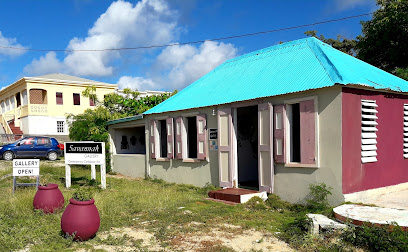
Essential bars & hidden hideouts
Blanchards Restaurant and Beach Shack
Experience the vibrant flavors of the Caribbean at Blanchards Restaurant and Beach Shack in Anguilla, where exquisite dining meets breathtaking beach views.
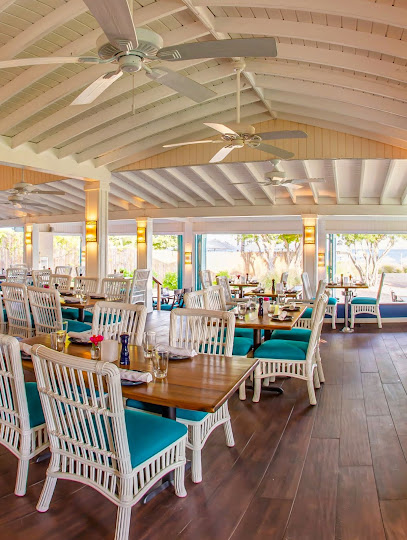
Elvis Beach Bar
Discover the vibrant atmosphere and delicious local flavors at Elvis Beach Bar in Anguilla, a must-visit destination for sun-seeking tourists.
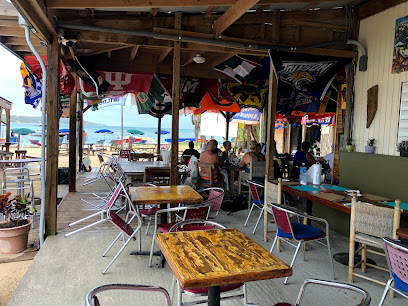
Da'Vida
Experience the flavors of Anguilla at Da'Vida, a beachfront restaurant blending exquisite cuisine with stunning ocean views.
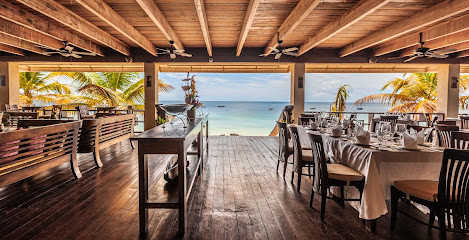
Sunshine Shack
Experience Caribbean flavors at Sunshine Shack, a beachfront restaurant offering fresh cuisine and stunning views at Rendezvous Bay, Anguilla.
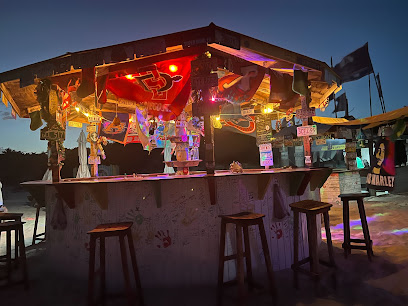
Bankie Banx's Dune Preserve
Discover the essence of Caribbean culture at Bankie Banx's Dune Preserve, where live music, delicious food, and stunning beach views unite.
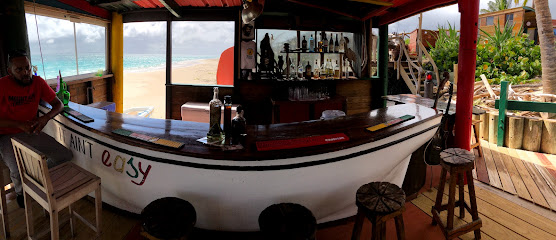
Gwen's Reggae Bar and Grill
Experience authentic Caribbean cuisine and lively reggae vibes at Gwen's Reggae Bar and Grill in Anguilla's stunning beach setting.
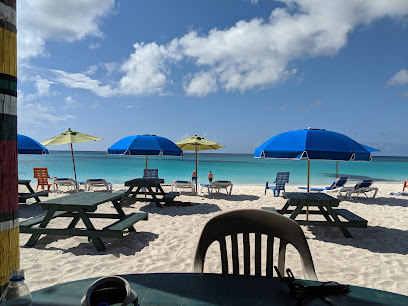
SandBar
Experience the vibrant nightlife and tropical flavors at SandBar in Sandy Ground, Anguilla - a must-visit for every traveler seeking island charm.
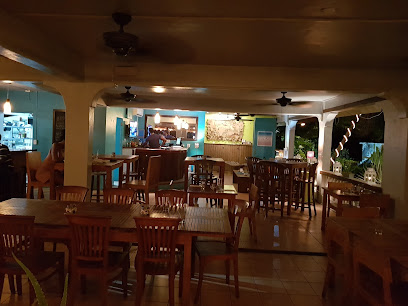
Savi Beach Club
Discover the culinary delights of Savi Beach Club in Anguilla, where Caribbean, Italian, and Japanese flavors meet stunning seaside views.
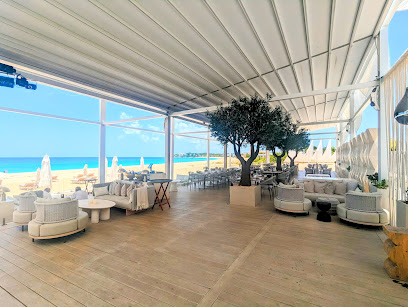
Veya Restaurant
Discover the vibrant flavors of Anguilla at Veya Restaurant, where local ingredients meet international culinary artistry in a stunning setting.
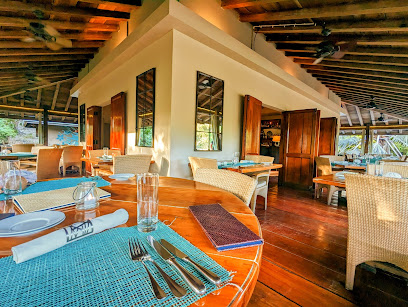
Tropical Sunset Restaurant & Bar
Discover Tropical Sunset Restaurant & Bar, an exquisite Caribbean dining experience with stunning beach views in Anguilla, blending local flavors with a relaxing atmosphere.
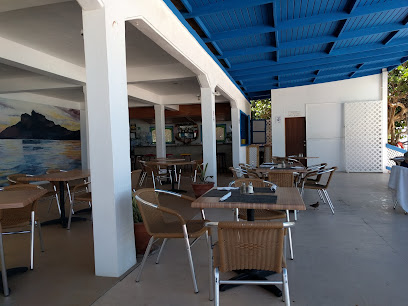
Lit lounge
Experience the vibrant nightlife and exquisite cocktails at Lit Lounge, Anguilla's premier destination for relaxation and entertainment.
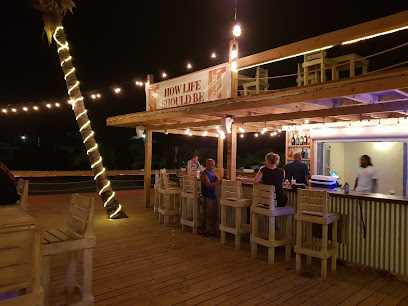
Corner Bar And Pizza
Discover the vibrant flavors of Anguilla at Corner Bar And Pizza, where unique pizzas and local beverages create an unforgettable dining experience.
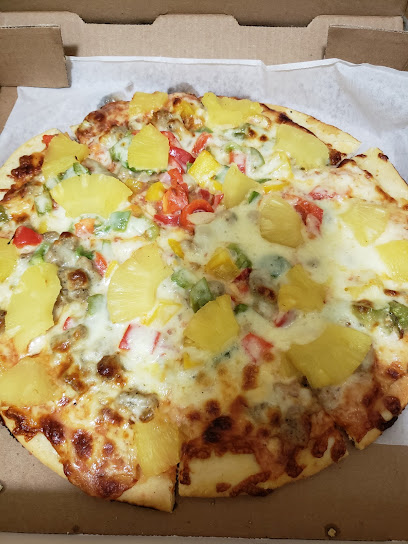
Andy's Restaurant & Bar
Experience the flavors of the Caribbean at Andy's Restaurant & Bar in Anguilla, where every meal is a celebration of local ingredients and culinary tradition.
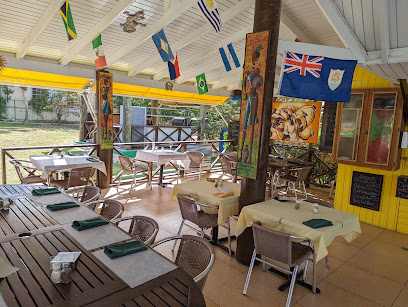
Jacala Beach Restaurant
Savor exquisite Caribbean cuisine at Jacala Beach Restaurant, a culinary paradise in Meads Bay, Anguilla, with stunning ocean views.
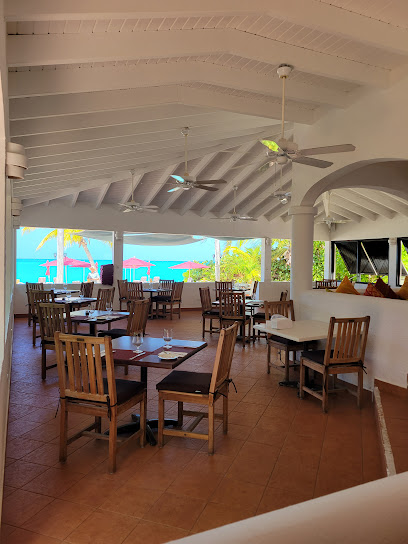
Local Phrases about Crocus Bay
-
- HelloGood Morning
[gud mawnin] - GoodbyeGoodbye
[gudbai] - YesYes
[yes] - NoNo
[no] - Please/You're welcomePlease
[pliiz] - Thank youThank you
[tenk yu] - Excuse me/SorryExcuse me
[eks-kyoos mi] - How are you?How are you?
[haw aa yu] - Fine. And you?I'm fine. And you?
[aim fain. an yu] - Do you speak English?Do you speak English?
[du yu spiik ingglish] - I don't understandI don't understand
[ai dont andah-stand]
- HelloGood Morning
-
- I'd like to see the menu, pleaseI'd like to see the menu, please
[ai'd laik tu si di menyuu pliiz] - I don't eat meatI don't eat meat
[ai dont iit miit] - Cheers!Cheers!
[chiiz] - I would like to pay, pleaseI would like to pay, please
[ai wud laik tu pei pliiz]
- I'd like to see the menu, pleaseI'd like to see the menu, please
-
- Help!Help!
[help] - Go away!Go away!
[go aweh] - Call the Police!Call the Police!
[kaal di poliis] - Call a doctor!Call a doctor!
[kaal a dakta] - I'm lostI'm lost
[aim lost] - I'm illI'm ill
[aim il]
- Help!Help!
-
- I'd like to buy...I'd like to buy...
[ai'd laik tu bai] - I'm just lookingI'm just looking
[aim jost luking] - How much is it?How much is it?
[haw mach iz it] - That's too expensiveThat's too expensive
[dats tuu ekspensiv] - Can you lower the price?Can you lower the price?
[kan yu loa di prais]
- I'd like to buy...I'd like to buy...
-
- What time is it?What time is it?
[wat taim iz it] - It's one o'clockIt's one o'clock
[its wan ahklok] - Half past (10)Half past (10)
[haaf past (ten)] - MorningMorning
[mawnin] - AfternoonAfternoon
[aftanoon] - EveningEvening
[iivnin] - YesterdayYesterday
[yestadeh] - TodayToday
[tudeh] - TomorrowTomorrow
[tamawo] - 11
[wan] - 22
[tuu] - 33
[tiri] - 44
[foa] - 55
[faiv] - 66
[siks] - 77
[sevn] - 88
[eit] - 99
[nain] - 1010
[ten]
- What time is it?What time is it?
-
- Where's a/the...?Where's a/the...?
[weh iz a/the] - What's the address?What's the address?
[wats di adres] - Can you show me (on the map)?Can you show me (on the map)?
[kan yu shoh mi (on di map)] - When's the next (bus)?When's the next (bus)?
[wenz di neks (bas)] - A ticket (to ....)A ticket (to ....)
[a tiket (tu ....)]
- Where's a/the...?Where's a/the...?
History of Crocus Bay
-
Long before European explorers arrived, Crocus Bay was inhabited by the Arawak people. They were the island's original settlers, known for their advanced agricultural practices and intricate pottery. Evidence of their presence, such as petroglyphs and artifacts, can still be found in the area, providing a glimpse into their daily lives and spiritual practices.
-
Crocus Bay first entered European maps in the late 15th century, following the voyages of Christopher Columbus. The island of Anguilla was initially claimed by the Spanish, but it was the English who established a more permanent presence in the 17th century. Crocus Bay became a pivotal area for the English settlers, serving as a strategic point for defense and trade.
-
One of the most significant historical events in Crocus Bay is the Battle of Anguilla in 1796. The French attempted to invade the island, but the local militia, including many from the Crocus Bay area, successfully repelled the attack. This battle is celebrated as a testament to the resilience and bravery of Anguillians.
-
During the 18th and 19th centuries, Crocus Bay and its surrounding areas were part of the island's thriving sugar plantation economy. Enslaved Africans were brought to work on these plantations under harsh conditions. The remnants of these plantations, including the ruins of mills and estate houses, are silent witnesses to this dark chapter in the island's history.
-
In 1834, slavery was abolished in Anguilla as part of the British Empire's wider emancipation efforts. Crocus Bay, like the rest of the island, saw significant social changes as formerly enslaved people began to establish their own communities and livelihoods. The bay area became a hub of cultural transformation and resilience.
-
Crocus Bay played a role during the Anguilla Revolution of 1967, when the islanders sought to secede from the Associated State of St. Kitts-Nevis-Anguilla. The revolution was a peaceful one, characterized by the determination of Anguillians to govern themselves. This pivotal event led to Anguilla becoming a separate British Overseas Territory.
-
Today, Crocus Bay is a vibrant area that blends its rich history with modern attractions. The bay is known for its stunning beaches, clear waters, and local cuisine. Visitors can explore historical landmarks, enjoy water sports, and experience the warm hospitality of the Anguillian people, making it a unique destination that honors its past while embracing the present.
Crocus Bay Essentials
-
Crocus Bay is located in Anguilla, a British Overseas Territory in the Caribbean. The main point of entry is the Clayton J. Lloyd International Airport (AXA) in Anguilla. There are no direct flights from major international cities, so travelers often connect through nearby islands such as Puerto Rico, St. Martin, or Antigua. From the airport, you can take a taxi or rent a car to reach Crocus Bay, which is approximately a 15-minute drive away. Alternatively, you can arrive by sea; ferries run regularly from St. Martin to Anguilla's Blowing Point Ferry Terminal, from where it's a short drive to Crocus Bay.
-
Transportation around Crocus Bay and the rest of Anguilla is relatively straightforward. Car rentals are popular and recommended for exploring the island at your own pace. Taxis are also readily available, though they can be more expensive. Bicycles and scooters can be rented for shorter distances and a more adventurous experience. Public buses are limited, so they are not the most reliable mode of transportation for tourists.
-
The official currency in Anguilla is the Eastern Caribbean Dollar (XCD), but US Dollars (USD) are widely accepted. Credit and debit cards are accepted in most hotels, restaurants, and shops. However, it's advisable to carry some cash, especially for smaller establishments or in case of technical issues with card machines. ATMs are available, but they may charge a fee for withdrawals.
-
Crocus Bay and Anguilla, in general, are considered safe for tourists. Violent crime is rare, but petty crimes such as theft can occur. It is advisable to take standard precautions like not leaving valuables unattended on the beach and being cautious in less populated areas at night. Always lock your accommodations and rental vehicles. There are no specific high-crime areas targeting tourists, but staying vigilant is always a good practice.
-
In case of an emergency, dial 911 for immediate assistance. The Princess Alexandra Hospital in The Valley, Anguilla, offers medical services for emergencies. For minor health issues, pharmacies are available where you can purchase over-the-counter medications. It is strongly recommended to have travel insurance that covers medical emergencies and other unforeseen incidents.
-
Fashion: Do wear casual and comfortable clothing; swimwear is appropriate for the beach but not in town. Avoid overly revealing attire. Religion: Do respect local religious practices, especially if visiting churches. Public Transport: Do negotiate taxi fares before starting your journey. Public transport is limited, so plan accordingly. Greetings: Do greet people with a friendly 'hello' or 'good morning'. A handshake is a common greeting. Eating & Drinking: Do try local dishes and seafood. Always show appreciation for the food. Don’t refuse hospitality; it might be considered impolite.
-
To experience Crocus Bay like a local, visit during the quieter off-peak seasons when you can interact more closely with residents. Enjoy fresh seafood at local beachside shacks and take part in community events or festivals if your visit coincides with one. Engage with the local fishermen and learn about their daily catch. For a serene experience, take an early morning walk along the beach and enjoy the sunrise. Don't miss exploring the limestone caves at the eastern end of Crocus Bay.
Trending Landmarks in Crocus Bay
-
Elvis Beach Bar
-
Cap Juluca, A Belmond Hotel, Anguilla
-
Zemi Beach House, LXR Hotels & Resorts
-
Shoal Bay Beach
-
Da'Vida
-
Sunshine Shack
-
Madeariman
-
Bankie Banx's Dune Preserve
-
Gwen's Reggae Bar and Grill
-
Anguilla Arch
-
Elodias Beach Resort
-
Anguilla Great House Beach Resort
-
The Ferryboat Inn
-
Fountain Residences Anguilla
-
Turtle's Nest Beach Resort
Nearby Cities to Crocus Bay
-
Things To Do in George Hill
-
Things To Do in Sandy Ground Village
-
Things To Do in South Hill
-
Things To Do in Shoal Bay Village
-
Things To Do in Blowing Point Village
-
Things To Do in Long Bay Village
-
Things To Do in Island Harbour
-
Things To Do in East End Village
-
Things To Do in West End Village
-
Things To Do in Sint Peters
-
Things To Do in Cole Bay
-
Things To Do in Lowlands
-
Things To Do in Maho
-
Things To Do in Dieppe Bay Town
-
Things To Do in Sandy Point Town







